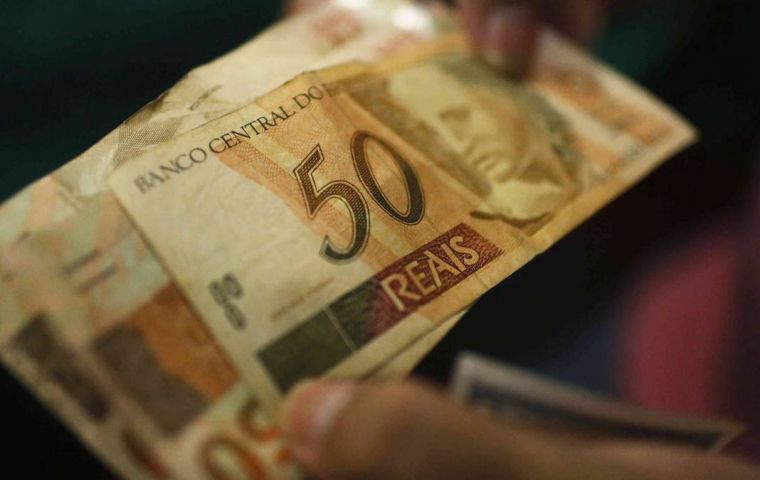MercoPress. South Atlantic News Agency
Brazil on the brink of financial default, points out the Financial Times
 Most of the money went on “corona vouchers”: a flat-rate temporary income boost for nearly a third of the population, points out the Financial Times
Most of the money went on “corona vouchers”: a flat-rate temporary income boost for nearly a third of the population, points out the Financial Times  A move which lifted beer sales and Bolsonaro’s popularity, “but proved ruinous for Brazil’s already shaky finances”
A move which lifted beer sales and Bolsonaro’s popularity, “but proved ruinous for Brazil’s already shaky finances” Brazilian president Jair Bolsonaro has been s skeptical of the coronavirus pandemic and the effectiveness of different vaccines to contain it, arguing that the economy, jobs and activity, were the priority above sanitary recommendations. As a result of this approach, his administration's federal spending jumped almost 40% between January and November, according to the Institute of International Finance. And Bolsonaro had even admitted the country is “broke.”
Most of the money went on “corona vouchers”: a flat-rate temporary income boost for nearly a third of the population, points out the Financial Times. A move which lifted beer sales and Bolsonaro’s popularity, “but proved ruinous for Brazil’s already shaky finances.”
In effect, public debt now stands at more than 91% of GDP, one of the highest levels of any emerging market. Plagued by weak growth, Brazil has not balanced its budget before debt servicing costs since 2013, and vital reforms to trim overgenerous salaries and perks for public sector workers remain stalled in Congress, as well as a much-touted overhaul of the convoluted tax system has yet to happen. Economy minister Paulo Guedes and his ambitious privatization program has been stymied by vested interests and an ongoing discussion about measures and protocols to contain the pandemic.
However the corona voucher scheme expired at the end of last year but, as virus infections jump again, Brazilian politicians are lobbying for it to restart. Paulo Guedes has so far resisted but his hands are tied by the president's populism and overriding re-election goal next year.
What's the next step then? About 95% of Brazil’s debt is domestic, most of it held by local investors. Few foreign creditors, whether private or multilateral, would lose money from a default and Brazil has a long history of teetering on the fiscal brink, and contrary to its neighbor Argentina, without falling over.
However figures show that most of Brazil’s R$4.8tn (US$ 878bn) of debt is short-term and maturities are getting shorter: almost 30% comes due in the next year. Inflation, an old bugbear, is ticking upwards. Even Bolsonaro when asked for an extension of the corona vouchers, has declared that the country is broke.
Nevertheless the Financial Times argues Brazil can still step back from the brink because unlike many nations caught in the economic agonies of coronavirus, its fate lies largely in its own hands. The government can still fund itself. There need be no conflict between providing well-directed support to the economy and curing the longer-term ills of pampered civil servants, protected national businesses and a privileged elite that does not pay its fair share of tax in one of the world’s most unequal societies.
Bolsonaro should remember his campaign promises which led him to the presidency of Latin America's leading economy: accountability and transparency, which have been lacking in Latin America’s biggest nation for too long and its 210m citizens have paid the price. The pandemic should force a long-overdue reckoning, not just of the national accounts, but of the grotesque economic imbalances which have blighted Brazilian society, concludes the Financial Times.




Top Comments
Disclaimer & comment rules-

Read all comments“A move which lifted beer sales. . .” Nice ! I have little doubt that this is an accurate correlation. It shows, once again, how these types of short sighted ruinous government interventions have little or no retentive value. If Brazil defaults, it will have profound effects on the already fragile social structure of the country. The thin former elite in Venezuela now pays the piper. The Brahmins of Brazil have a similar account balance.
Jan 31st, 2021 - 10:48 am 0Commenting for this story is now closed.
If you have a Facebook account, become a fan and comment on our Facebook Page!